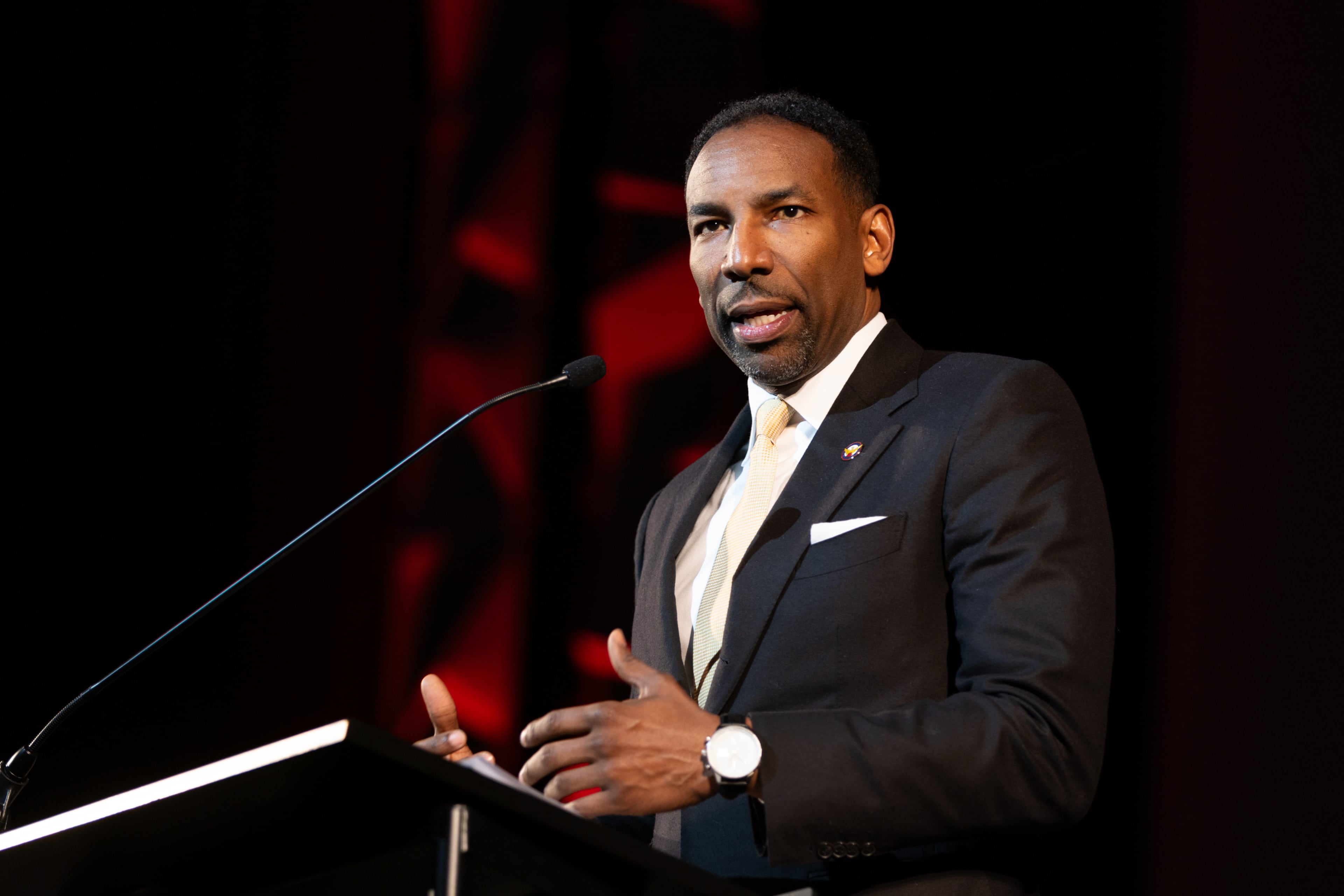Atlanta businesses could face higher taxes under new proposal

Atlanta is proposing increasing the fees businesses pay the city each year to operate for the first time since 1999, a move leaders say will help combat inflation and rising administrative costs without raising property taxes.
The proposal from Mayor Andre Dickens comes after a tough budget season and after the mayor, who is running for reelection, warned recently a property tax hike might be unavoidable in the years ahead.
As it stands now, Atlanta’s occupational tax rate is lower than the rates in Augusta and Columbus, according to Peter Aman, the city’s chief strategy officer.
Occupational taxes are the fees based on gross receipts companies pay to their local government to run their business. The revenue goes into the city’s general fund, which covers city services, infrastructure and other public programs.
If approved, the changes will increase the average tax rate from 0.13% of Atlanta-based total gross receipts across all classes to an average of 0.21% in 2027, according to numbers provided by the city. Under the proposal, for a business bringing in $700,000 per year in gross, it will pay about $380 more in 2026, according to city officials.
The city is also raising the cap on gross receipts from $200 million to $400 million in 2026 and $600 million the following year. This affects only about a couple dozen companies. The cost of simple application fees, those for very small businesses, will increase from $75 to $191 in 2026 and to $215 in 2027.
“We’re trying to modernize our revenue model so that we can afford the things the citizens are demanding of us,” Aman said.
The city did not say how much it hoped to raise from the higher occupational tax rates.
The mayor’s office plans to soon introduce the legislation. Public hearings are anticipated to start Sept. 10. If approved by the City Council, the first phase of the rate changes will take effect in January.
The Metro Atlanta Chamber and Atlanta Business League, both organizations representing local businesses in the region, did not immediately respond to requests for comment.

The proposal comes after city leaders worked quickly to reduce a more than $30 million budget deficit at the end of the last fiscal year through departmental cuts that included layoffs. It marks an effort by the city to find revenue without hitting broader residential taxes.
Late last month, Dickens said a property tax hike is almost unavoidable within the next few years as Atlanta’s faces major infrastructure projects and increased demand on city services amid population growth.
The city is not alone in its search for revenue. This month, Fulton County held its first public hearings to discuss raising its millage rate, the measurement used to calculate property tax bills, which would hit many city residents as well.
Mohamed Balla, the city’s chief financial officer, said occupational taxes are the first of many fees that will need to be modernized for the city.
“Our efforts are to really make sure that before we raise any property taxes, that we have looked at all other costs and revenue opportunities in the city,” Balla said.
From April 2023 to April 2024, the 11-county metro area added 62,000 residents, according to estimates from the Atlanta Regional Commission. By 2025, the organization expects the 21-county metro area to grow by 1.8 million over the 2020 census figures.
This growth means a greater need for public safety, public works, infrastructure and social costs, Aman said.
Since 2004, growth in gross domestic product for Atlanta has outpaced city revenue growth, Aman said. Revenues have been flat-to-sinking on a per capita and inflation-adjusted basis.
“That’s not the norm. That is not typical,” Aman said. “If you look at the average of state revenue or federal government revenue, it’s growth above inflation over this period of time.”
The process to raise occupational fees is not easy, Balla said, which could explain why it’s taken a quarter of a decade to change. It’s even more difficult in a city that is already strapped for time, resources and professionals’ abilities to tackle what’s in front of them.
“Things like this aren’t necessarily always a priority until they become a priority,” Balla said. “In an inflationary environment where costs are growing so fast, things like this creep up again.”
Also included in the changes is the implementation of a $657 fee for complex applications. This fee will increase to $701 the following year under the proposal.
Editor’s note: This story has been updated to correct information about the plan to increase the revenue cap for purposes of charging occupational taxes.



